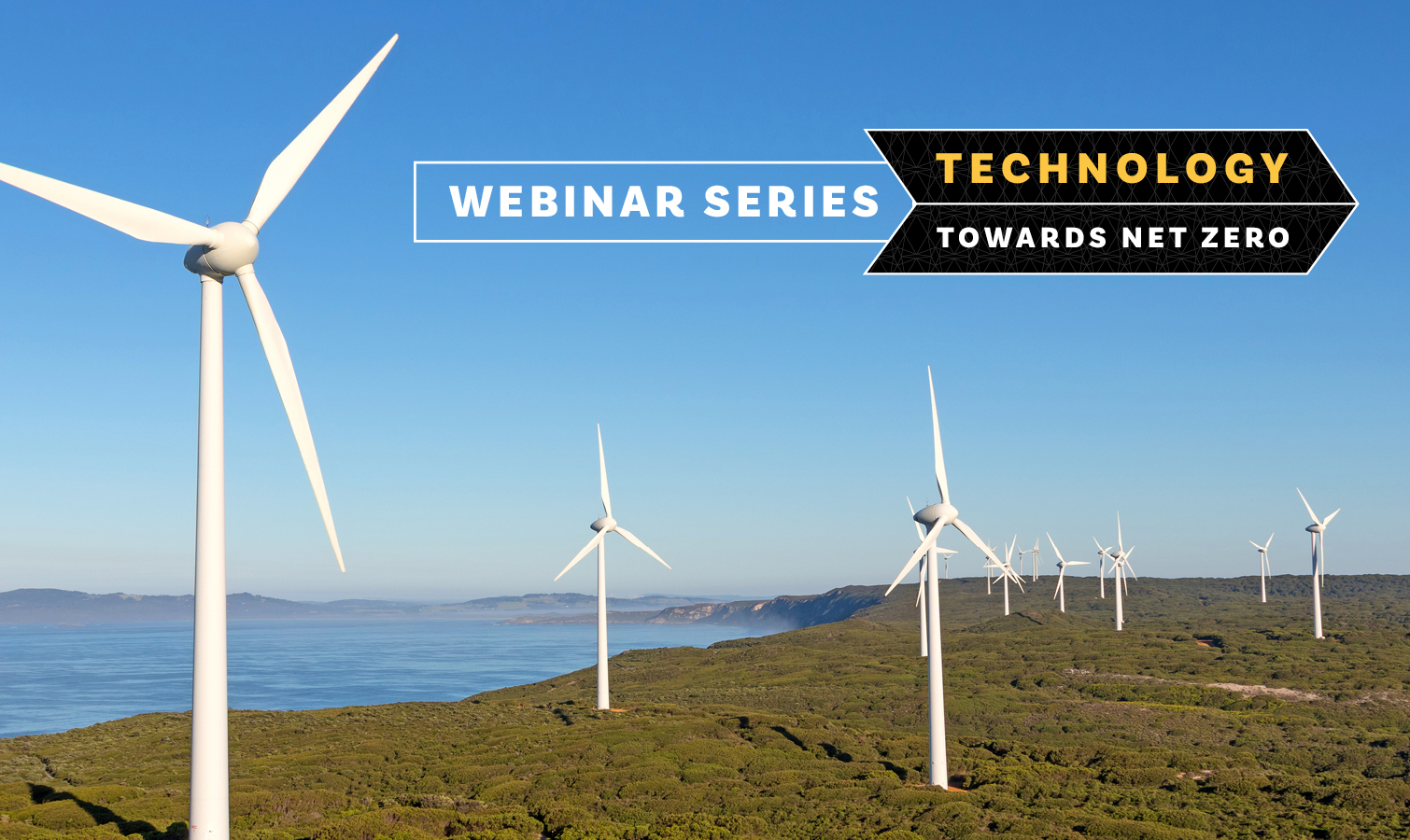
WEBINAR SERIES: Towards Net Zero
Wednesday 27 October 2021
12.00pm-1.00pm AEDT
Fast track to a clean future
ATSE launched its Net Zero Emissions Position Statement in September 2021. It calls for Australia to take urgent action to achieve net zero emissions by 2050 at the latest, and for Australia to set a more ambitious interim emissions target for 2030.
The statement also says Australia should prioritise the immediate deployment of existing mature, low-carbon technologies which can make deep cuts to high-emitting sectors before 2030.
Fast Track to a Clean Future, is the first webinar in our Net Zero Tech series, where we’ll be discussing mature and emerging technologies that can help Australia transition to net zero emissions, in both energy supply and user demand sectors.
Join us on 27 October to hear from ATSE Fellows Dr Helen Cleugh (Former Head CSIRO Climate Science Centre), Professor Andrew Blakers (Professor of Engineering Australian National University) and Scientia Professor Deo Prasad (Professor, University of New South Wales).
Our speakers will outline the unequivocal climate science that underpins the urgency with which Australia, must act to reduce our emissions and reduce the consequences of unchecked climate change. They will also explore key technologies available today that can be used here in Australia to make deep cuts to our emissions this decade, setting us on a course for achieving net zero emissions as soon as possible.
ATSE Fellow Dr Katherine Woodthorpe AO will moderate the webinar and will facilitate a Q&A discussion with the panel following their presentations.
This webinar is free and is open to Fellows and the public.
_ _ _ _ _
SPEAKERS
Dr Helen Cleugh FTSE CSIRO Post Retirement Fellow, Former Director of CSIRO Climate Science Centre
Professor Andrew Blakers FTSE Professor of Engineering, Australian National University
Scientia Professor Deo Prasad AO FTSE Scientia Professor, UNSW
MODERATOR
Dr Katherine Woodthorpe AO FTSE
SPEAKERS
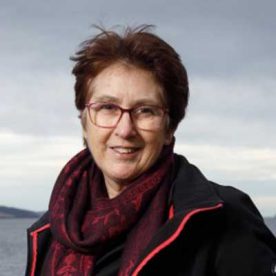
Dr Helen Cleugh FTSE
CSIRO Post Retirement Fellow, Former Director of CSIRO Climate Science Centre
Dr Helen Cleugh is an atmospheric scientist whose career has spanned research discovery, delivery and leadership. She completed her PhD at the University of British Columbia in Canada then joined Macquarie University as a lecturer in 1987 before her appointment as a Research Scientist with CSIRO in 1994. She is now a CSIRO Post Retirement Fellow.
Dr Cleugh is a Fellow of both the Australian Academy of Technology and Engineering (ATSE) and the Australian Meteorological Society (AMOS). She has been a member of the World Climate Research Programme’s Joint Scientific Committee since 2015 and is currently the Vice Chair.
Dr Cleugh was inaugural Director of CSIRO’s Climate Science Centre from 2017 to 2020 and, for over a decade prior, she was a senior leader of CSIRO’s climate and atmospheric research. Her leadership roles including building collaborations within CSIRO and nationally, including national research infrastructure for terrestrial and observations (NCRIS TERN) and Earth System Models (ACCESS-NRI).
Her research explores the influence of land-air interactions on climate, carbon uptake and water availability, and how this affects carbon and water resource management, environmental outcomes, and climate. Her research has provided data, information and knowledge for resource managers, urban planners, and decision and policymakers
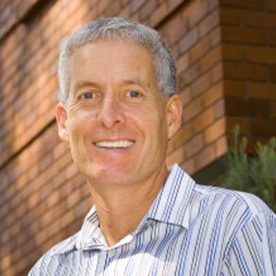
Professor Andrew Blakers FTSE
Professor of Engineering, Australian National University
Andrew Blakers is Professor of Engineering at the Australian National University where he founded the solar PV research group in 1991. In the 1980s and 1990s he was responsible for the design and fabrication of silicon solar cells with reported world record efficiencies of 18%, 19%, 20% and 22%. He was instrumental in the founding of the Australian Solar Institute (the forerunner of the Australian Renewable Energy Agency).
He was co-inventor of Sliver solar cell technology, the subject of a $240 million commercialisation effort by Transform Solar. He was co-inventor of the PERC silicon solar cell, which has 90% of the global solar market and cumulative module sales of A$100 billion. PERC cell deployment is mitigating about 1% of global Greenhouse gas emissions through displacement of coal. Prof Blakers engages in detailed hour-by-hour analysis of energy systems with 50-100% penetration by wind and photovoltaics for which he was co-winner of the 2018 Eureka Prize for Environmental Research. Prof Blakers’ team developed a comprehensive global atlas of off-river pumped hydro energy storage sites. He engages in about 100 outreach activities each year.
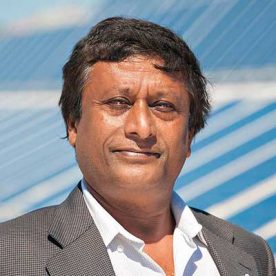
Scientia Professor Deo Prasad AO FTSE
Scientia Professor, UNSW
Scientia Professor Deo Prasad is among the internationally recognised Australian experts in the field of environment, sustainability, and decarbonisation. He has demonstrated expertise in delivering research to impact in large scale industry, government, and research collaborations. Deo has always worked in the applied field and with qualifications in design, management, science, and engineering, has a clear understanding of multi-disciplinary approaches. His governance experience includes high level government and education Boards, he has driven ideas to high level research activities with impact and has been recognised by industry and governments for these. Most recently as the CEO and chief investigator of the CRC for Low Carbon Living.
This Hub delivered on knowledge, new technologies, evidence for policies and once in a generation capacity build in this field. The end of project report showed verification from PWC that the CRCLCL had exceeded the key KPI promise of decarbonisation, economic impacts and capacity building. Before this, he led the SOLARCH Group at UNSW for over a decade during which time he led the production of books like ‘Energy efficient Australian Housing’ (AGPS), ‘Designing with Solar Power’ (Earthscan) and ‘Global Warming and the Built Environment’ (FPSpon). His more recent books have included Decarbonising the Built Environment (MacMillans) and is finalising the book ‘Climate Emergency – delivering on net zero carbon built environment’ (Springer). Deo is a firm supporter of a ‘science-led evidence-based approach’.
MODERATOR
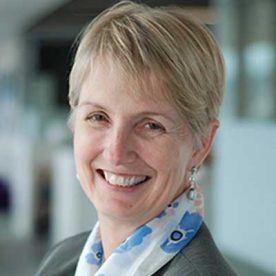
Dr Katherine Woodthorpe AO FTSE
Dr Woodthorpe has advanced Australia’s ability to derive substantial value from translation of research outputs into tangible outcomes and benefits for scientists, research organisations, governments and industry. She has made substantial contributions to the Australian technology and science translation landscape over the past 25 years. During this time, she has had a significant influence on government policies that now enable and encourage technology-based companies to achieve their potential. She has been a leader at the nexus of industry and academia through her senior governance roles with technology companies, CRCs and NCRIS, UTS Council and University-owned ventures.